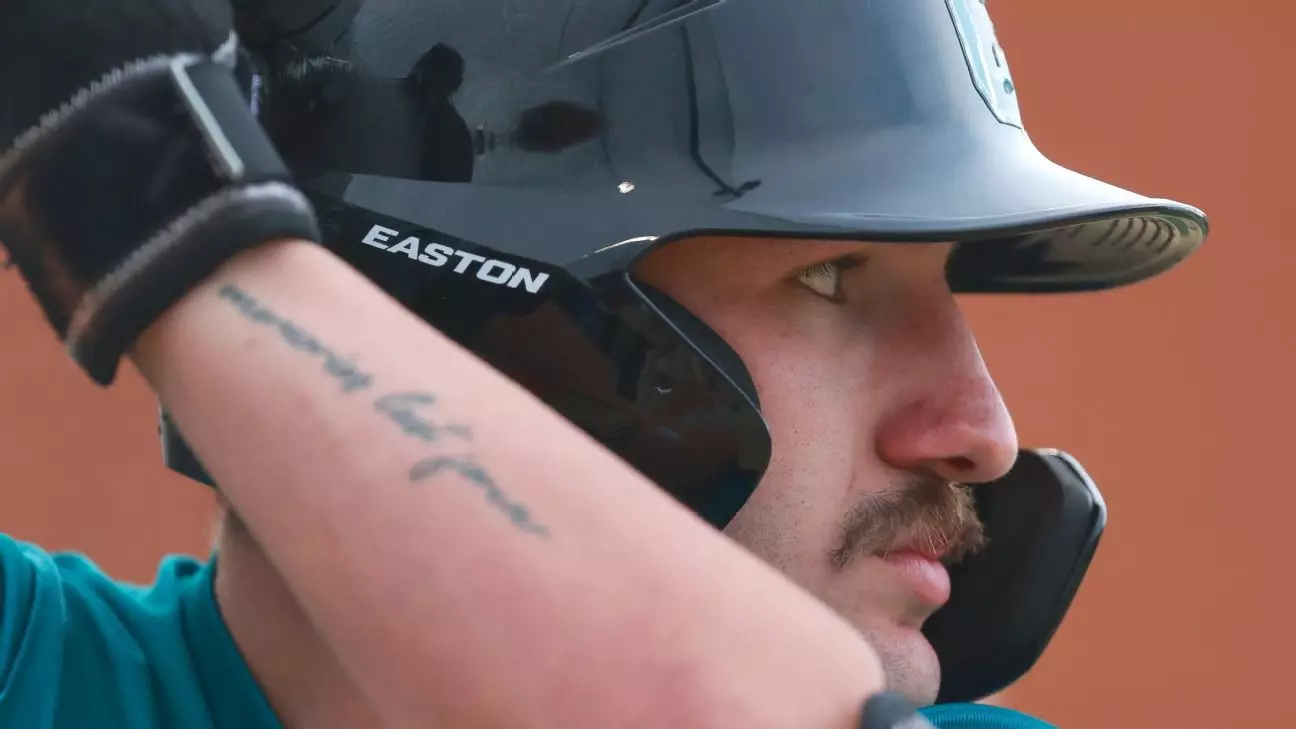The world of sports, especially baseball, is often layered with complexity, competition, and sometimes controversy. One such figure emerging amid a wave of scrutiny is Derek Bender, a former minor league catcher for the Minnesota Twins. Accusations claiming he tipped pitches to opposing batters have marred his burgeoning career and thrown him into the crosshairs of an ongoing Major League Baseball (MLB) investigation. Bender’s alleged actions had severe ramifications for his team and his own future in the sport, raising questions about sportsmanship, ethics, and the responsibility of players to maintain the integrity of the game.
In a recent interview with The Athletic, Bender staunchly denied the allegations leveled against him, asserting, “No, I never gave pitches away.” His adamant rejection of the claims is not merely a defensive stance but a poignant assertion of his integrity as a player. This statement indicates the immense psychological toll the allegations have had on him—he claims he will carry the burden of these accusations for life. While many players would likely choose to maintain silence during an investigation, Bender’s decision to speak publicly demonstrates his desperation to clear his name and reclaim his narrative.
Bender’s remarks during the interview also reveal his frustration about being misunderstood by teammates and fans. He claimed there has been a palpable shift in how people perceive him, which speaks to the often harsh and unforgiving nature of the professional sports landscape. The burden of public scrutiny can be overwhelming, especially when it involves the foundational aspects of one’s character.
The core of the controversy traces back to a game on September 6. Reports suggest that Bender informed multiple hitters from the Lakeland Flying Tigers, a minor league affiliate of the Detroit Tigers, about the pitches thrown by Fort Myers Mighty Mussels’ starter Ross Dunn. This alleged act not only contributed to a damaging 6-0 loss that eliminated the Mussels from playoff contention, but it also put Bender in the crosshairs of league scrutiny. Following the game, coaching staff from Lakeland reported the incident to Fort Myers, effectively setting off a chain reaction of accusations and investigations.
As the investigation unfolded, Bender’s behavior was scrutinized for hints of negligence or malfeasance. His reported comments to teammates, in which he jestingly mentioned letting a ground ball slip through his glove, were interpreted as further evidence of his alleged lack of focus and professionalism. While he later insisted these remarks were made in jest, readers cannot help but question the implications of such comments in light of the accusations against him.
The emotional toll of the situation naturally escalates when considering the psychological impact. Bender described a period of intense isolation where he felt compelled to cut ties with his social media accounts due to receiving death threats and abusive comments. Such behavior exhibits the darker side of sports fandom and the public’s rush to judgment. In an era when information (and misinformation) spreads like wildfire, Bender became a target, revealing the savage aspects of public life for an athlete embroiled in controversy.
As his prospects dimmed within professional baseball, the former Twins draft pick expressed a yearning to return to the sport he cherishes. Bender has indicated plans to play for the Brockton Rox in the independent Frontier League this summer, emphasizing his determination to rebuild following what feels like a catastrophic experience. This reveals the resilient nature that many athletes must possess, bouncing back from serious setbacks despite the gravity of the circumstances they face.
The implications of Bender’s situation extend beyond his individual experience and raise questions about the broader ethical framework in professional sports. His assertion that the Twins offered him a lifeline—albeit an ethically troubling one—by suggesting a public admission of guilt underscores the moral quandaries present in competitive athletics. Rather than championing open, honest communication and accountability, it seems some factions of the sport may prioritize maintaining a public façade.
Furthermore, the scenario highlights a chilling reality wherein athletes are coerced into navigating a minefield of public and private pressures. Bender’s decision to speak out and reclaim agency in his situation is commendable, yet it serves as a reminder of the pitfalls that athletes must navigate—often with their careers hanging in the balance.
As the investigation continues and Bender attempts to resurrect his career, one thing is clear: the integrity of sports remains a fragile enigma, with individual choices reverberating across teammates and fans alike. In his pursuit of redemption, Derek Bender’s journey will not only shape his future but also illuminate deeper conversations about integrity and ethical responsibility in athletic endeavors.

